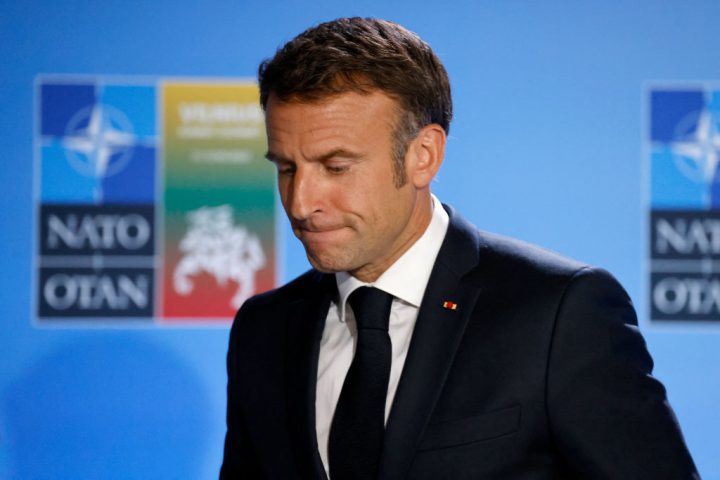In January this year, Prime Minister Rishi Sunak outlined his five priorities for Britain against a hazy timetable. Meanwhile in France, after months of parliamentary opposition, strikes and demonstrations against his pension reforms, President Macron’s legislation gained assent by a constitutional sleight of hand. To appease the country’s heightened state of tension in May, Macron pledged to return France to stability and order within ‘one hundred days’. ‘We have before us 100 days of pacification, of unity, of ambition and action in the service of France’. That period expires on 14 July.
An audit of either leader’s achievements to date has its challenges, especially given the recent most violent and widespread riots in France since 1968. But one has to wonder why Macron, attuned to French history, albeit not to his people, chose the period of ‘100 days’ concluding on 14 July. Both dates evoke powerful historical memory in the minds of the French, neither of which flatter France’s president.
Slowly but surely the single beneficiary of this state of affairs is Marine Le Pen
14 July only became France’s national day in 1880. Liberal republican politicians purposefully rejected the celebration of 14 July 1789, when France was torn by violent riots culminating in the storming of Paris’s Bastille prison. Instead they plumped for a year later –14 July 1790, the Fête de la Fédération, a bloodless celebration symbolising national unification. At the Paris celebration on the Champ de Mars even King Louis XVI was present.
The irony is that this year’s 14 July celebrations will take place on high alert for fear they become a pretext for more national rioting. The traditional fireworks display has been banned by some town councils and public transport will terminate in large cities between 9 and 10 p.m. Meanwhile, a massive presence of 130,000 police, paramilitary and fire brigade personnel will be on duty across France over the two days from 13-14 July.
Sensitivity will be further heightened by the presence of the guest of honour, Narendra Modi, India’s prime minister alongside Macron at the military parade on the Champs Élysées. Macron could not have foreseen what a swingeing indictment this would be of his management of the country, with many French feeling the epitome of their national identity has been confiscated by the continuing threat of mob violence.
Then there is Macron’s second unfortunate historical reference. The ‘Hundred Days’ was the last episode of Napoleon’s reign. It stretched from his triumphal return to Paris on 20 March 1815, after escaping from exile on the island of Elba in the Mediterranean, to 8 July 1815 with the Bourbon restoraton of King Louis XVIII. In those 100 days, to broaden his support, Napoleon made liberal changes to the Imperial constitution. But abroad, the allied forces of Austria, Britain, Prussia and Russia forced a series of military engagements that culminated in the fatal Battle of Waterloo, regarded as one of France’s seminal military defeats.
Macron had hoped that his 100 days would rekindle his presidency through national pacification and a route map of reform for his four remaining years. He has not gone down to a Napoleonic defeat, but his presidency and parliamentary majority are limping on while a deeply fractured and highly combustible society looks on with near disbelief at France’s condition.
Macron is a great survivor, largely because his opponents of left and right are so divided. A ministerial reshuffle is in the air, with the possibility that prime minister Elisabeth Borne could be jettisoned. But there is no clear replacement to broaden Macron’s parliamentary majority, although the appointment of the present hard-line interior minister Gerald Darmanin might garner support from the centre-right Republicans.
Slowly but surely the single beneficiary of this state of affairs, from unbridled immigration, failed assimilation, an assault on France’s national identity and Republican values and national decline, is Marine Le Pen. Although France faces no national elections in the near term, next year’s European elections will act as a barometer for her and her party’s support. Opinion surveys point to the old republican reflex of blocking the ‘far right’ as having evaporated. The examples across Europe of national conservatives leading or participating in governing coalitions further plays to Le Pen’s popularity.
Until the 2027 presidential elections, both France and Macron will muddle through, as will Sunak’s Britain for the next year or so. But the change on France’s horizon looks by far the most tumultuous – with few commentators able to predict the outcome.







Comments